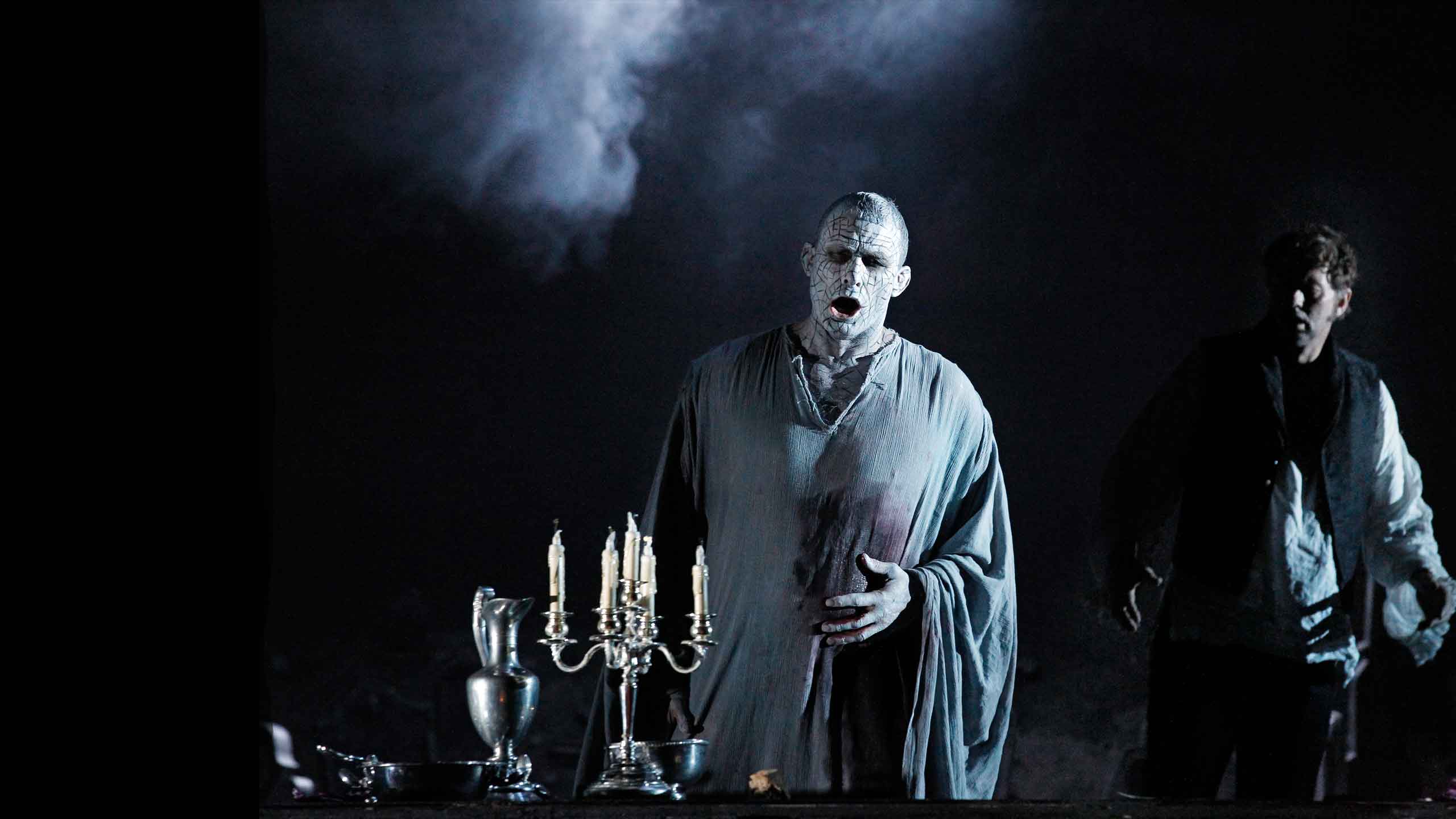Cheat Sheet: Don Giovanni
Everything you need to know about Mozart's hit opera.
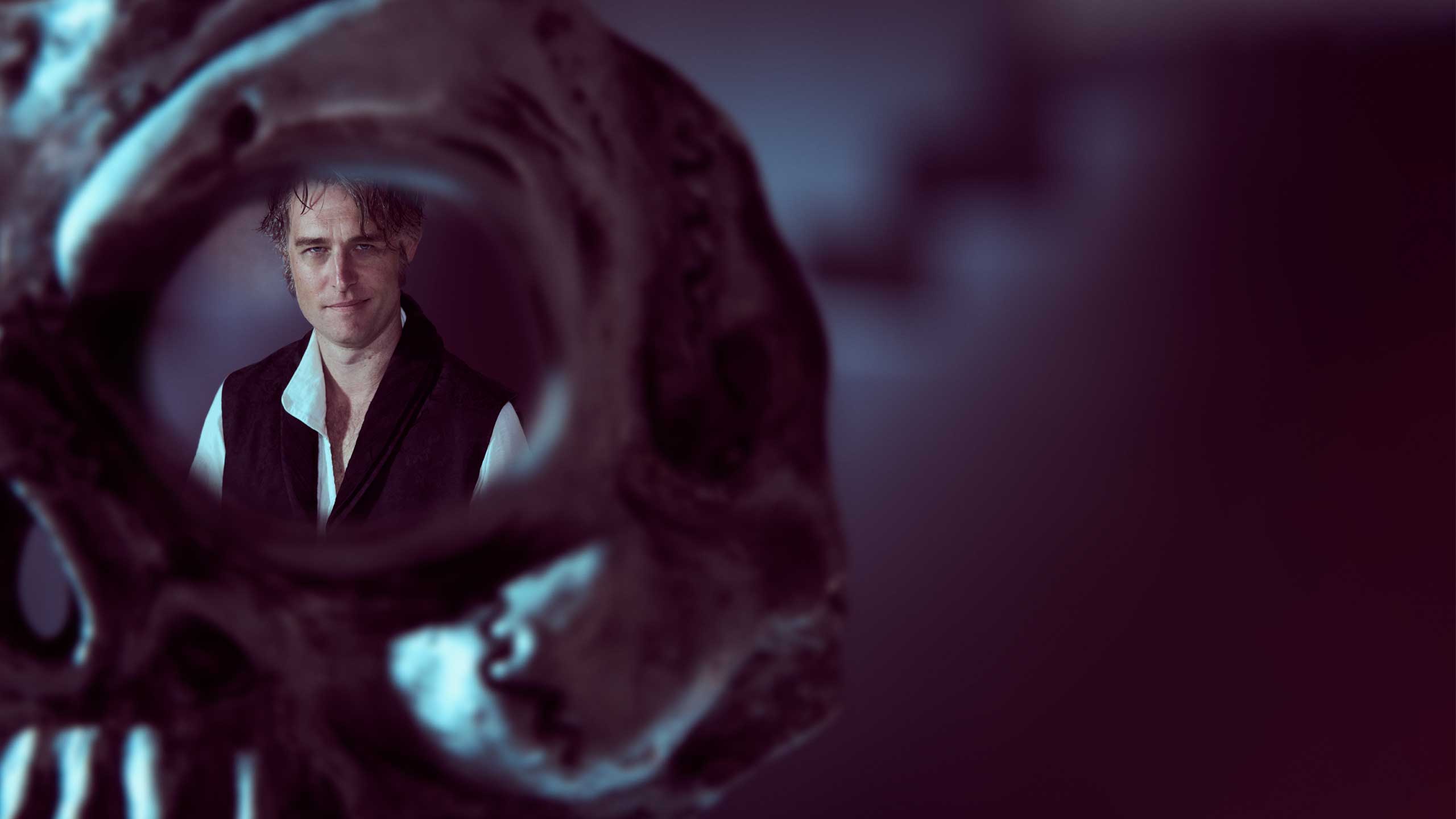
Who was the composer?
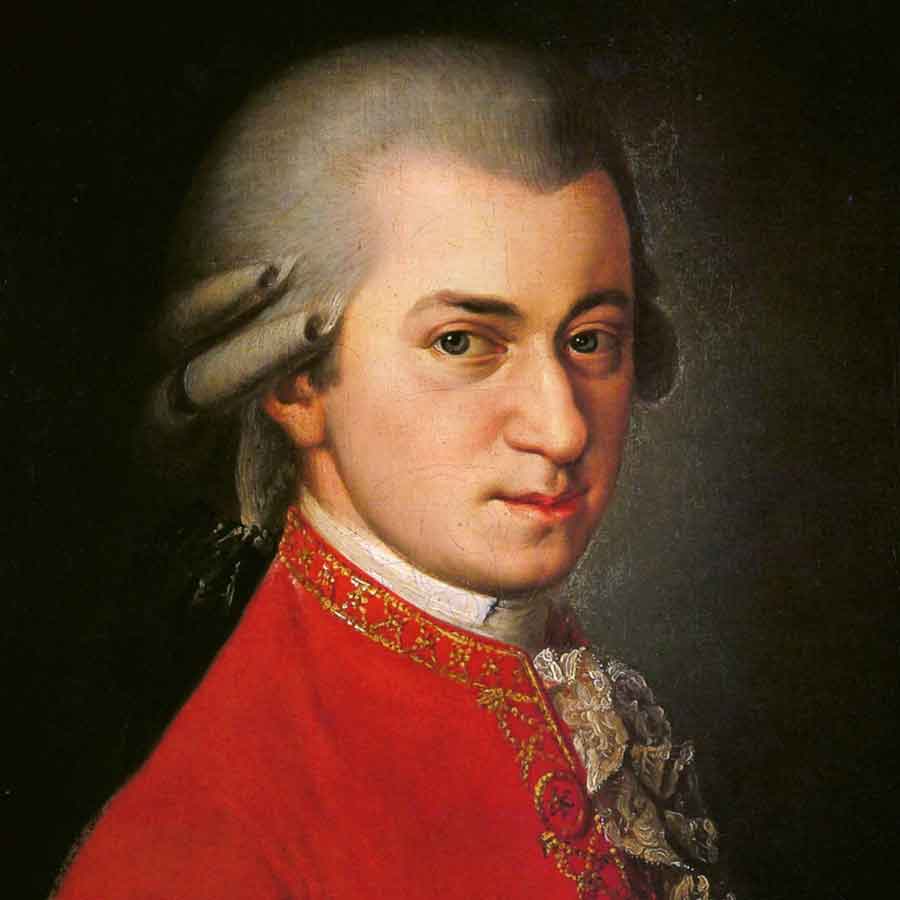
A posthumous portrait of Wolfgang Amadeus Mozart (1819) by Barbara Krafft. Source: Wikimedia Commons
A posthumous portrait of Wolfgang Amadeus Mozart (1819) by Barbara Krafft. Source: Wikimedia Commons
Wolfgang Amadeus Mozart.
How do you know you’re listening to Mozart? He wrote stunning melodies, often with lots and lots of notes.
When Mozart lived in Salzburg, the emperor is said to have remarked of his music: “Too beautiful for our ears, my dear Mozart, and vastly too many notes!”
To which Mozart supposedly replied, “Just as many as are necessary, your majesty!”
Mozart sought out stories for the music he already wished to write, believing “in an opera the poetry must at all costs be the obedient daughter of the music”.
What happens in the story?
It is the last day of Don Giovanni’s life, but he doesn’t know that.
For the libertine, it’s just another day of pleasure-seeking: breaking into a bedroom, killing a victim’s father and seducing a bride on her wedding day.
But despite his impressive track record, Don Giovanni’s luck is beginning to run out.
Donna Anna has sworn vengeance.
The scorned Donna Elvira is in pursuit.
Masetto wants his bride back.
And Don Giovanni has just heard a voice from beyond the grave, warning of his impending punishment.
But Don Giovanni has no fear. Half mocking, half earnest, he invites the graven statue of the man he’s just killed to dinner.
Will he come?
Not afraid of spoilers? Read the full synopsis.
Who are the main characters?
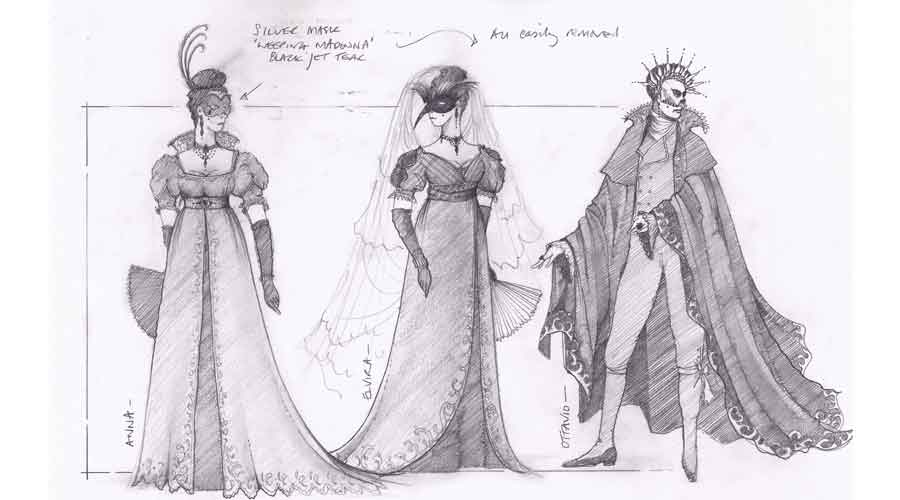
Costume sketch for Opera Australia's Don Giovanni, by designer Robert Jones.
Costume sketch for Opera Australia's Don Giovanni, by designer Robert Jones.
Don Giovanni — a nobleman living for pleasure
Leperello — his manservant, who both detests and envies his master for his success
Donna Elvira — the scorned lover
Donna Anna, the Commendatore & Don Ottavio — a victim, her father and her fiancé
Zerlina — a peasant girl who catches Don Giovanni’s eye on her wedding day
Masetto — her fiancé
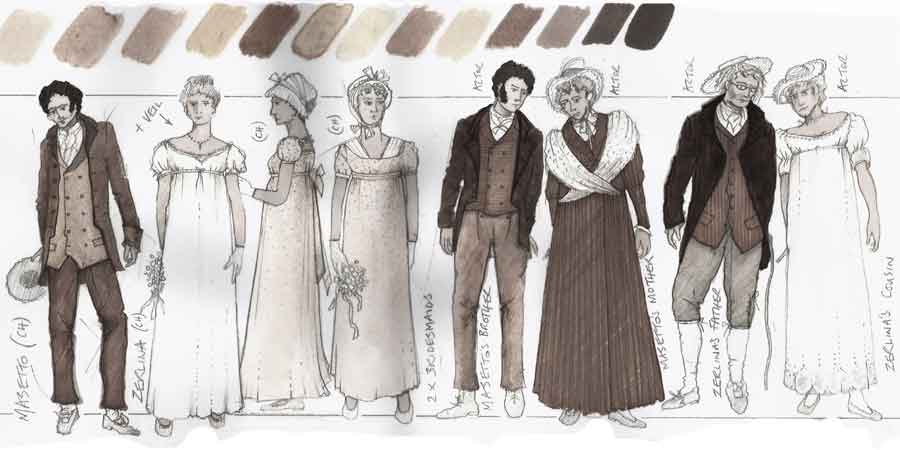
Costume designs for Opera Australia's Don Giovanni by designer Robert Jones.
Costume designs for Opera Australia's Don Giovanni by designer Robert Jones.
What's the big hit?
‘The Catalogue aria’, in which Leperello lists all of his master’s conquests:
“My lady, this is the list of the beauties my master has loved…”
Something to listen out for
- The first note of the overture is a clanging D Minor chord — as the gates of hell judder open, announcing Giovanni’s impending doom. But before long, the music bounces into D Major and at once we see the two threads that make Don Giovanni such a masterpiece – Mozart and Da Ponte have given us an opera that has laugh-out-loud moments of comedy in a story of violence, tragedy and darkness.
- Notice that Don Giovanni himself doesn’t get any showstopper arias, which are traditionally the vehicle of character revelation in opera. Mozart doesn’t give us any soliloquy to reveal what his title character thinks and feels — in two of his arias, he is actually imitating someone else! At the end of the opera, Don Giovanni is still a mystery to us.
- Listen out during Leperello’s amusing ‘Catalogue Aria' — as the servant describes “majestic” (read: larger) women, he sings long, broad notes. When he sings of petite ladies, the notes are short and snappy.
This production is...
... by the famous Scottish director David McVicar, created in 2014 for Opera Australia. He sets Don Giovanni at the end of the enlightenment age as the romantic era is dawning. It’s a dark world where class distinctions are very important.
The set shows off the obsession with death that was already beginning to grip the poets of the age, with an ever-visible graveyard and bones and skulls protruding from the walls. Pillars and walls offer plenty of places to hide.
A little history
Off the back of the enormous success of The Marriage of Figaro, one of the managers of Prague’s Nostitz Theatre commissioned Mozart for another work.
The composer wished to collaborate with librettist Da Ponte again, and Da Ponte, captivated by the story of Don Juan, was happy to oblige.
The tale of the libertine Don Juan and his demise had first appeared in print in the writings of Spanish monk Tirso de Molino, who wrote The Trickster of Seville and the Stone Guest in the 1620s. A libretto and opera already existed when Mozart and Da Ponte began writing, and the busy Da Ponte actually remodelled the existing libretto by Giovanni Bertati instead of writing his own. He worked so quickly that the original libretto is riddled with spelling mistakes.
Mozart was still writing the score right up until the premiere – it is likely the orchestra had to sight-read at least parts of it.
Mozart conducted the premiere himself “and was welcomed joyously and jubilantly by the numerous gathering,” according to a newspaper of Vienna. In other words? Don Giovanni’s 1787 premiere was a rip-roaring success.
Conversation starters
A few trivia tidbits in case you get stuck for a topic in the queue to the bathroom.
- Mozart and Da Ponte lived across the street from each other in Prague while composing Don Giovanni, and could be heard yelling back and forth as they worked their craft.
- It’s said that an elderly Casanova actually advised on the libretto — and was in the audience when it opened.
- Mozart supposedly wrote the overture the night before the opera premièred, while his wife plied him with drinks to keep him awake.
- Mozart called his opera a dramma giocoso — a “playful drama”, so there is both comedy and tragedy at play.
